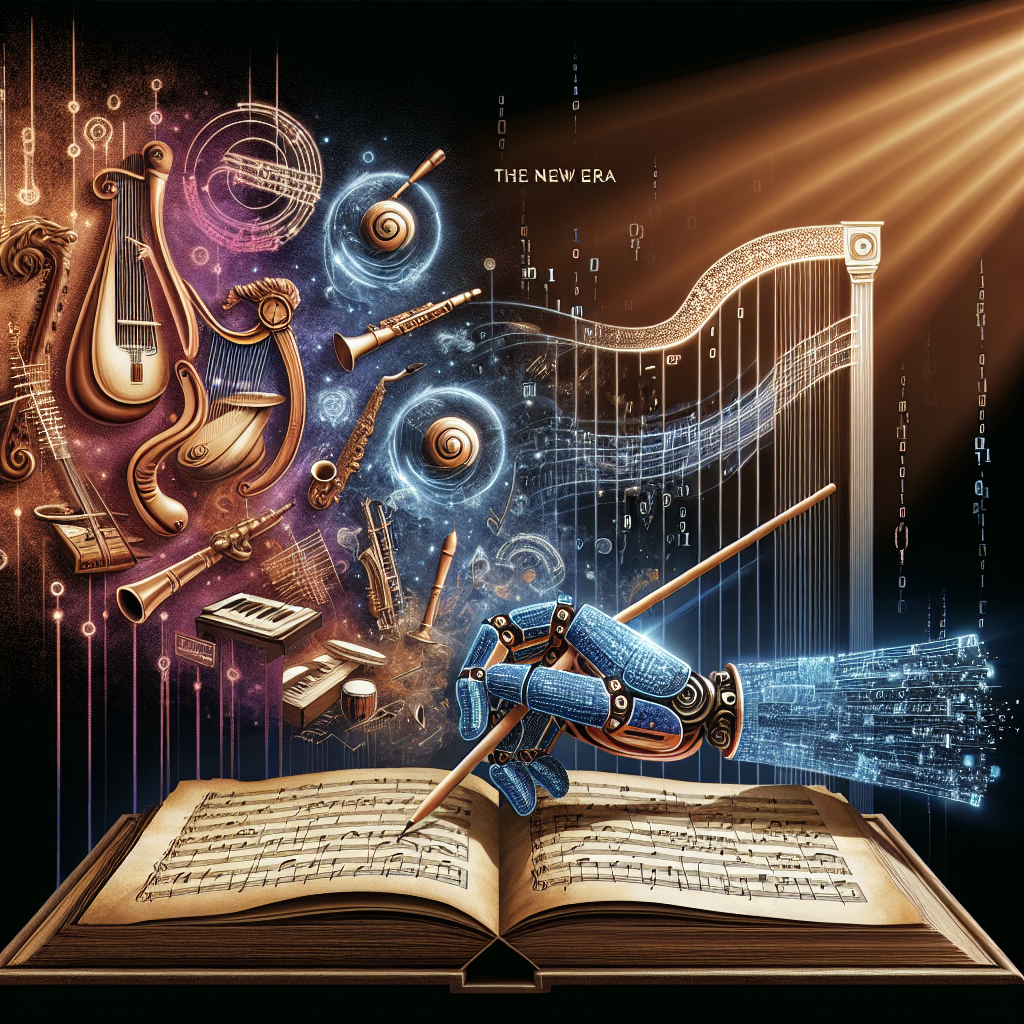Introduction
The world of music composition is experiencing a major transformation, propelled by advancements in artificial intelligence (AI). As technology progresses, AI evolves from being merely a tool to a co-creator, redefining the processes of music composition, production, and consumption. This emerging trend of AI-assisted music creation is not only making music production more accessible but also challenging our perceptions of artistry.
The Rise of AI in Music
Artificial intelligence has penetrated various fields, and music is no different. From AI-curated playlists on streaming platforms to advanced tools that help musicians create, AI’s influence is widespread. Noteworthy AI systems like OpenAI’s MuseNet and Google’s Magenta have shown remarkable abilities in generating original music compositions that echo different genres and styles.
AI as a Collaborator
The role of AI is shifting from a simple tool to a collaborative partner in the creative journey. Today, many musicians leverage AI to inspire new ideas or offer unique insights into their compositions. By examining extensive datasets of existing music, AI can propose chord progressions, melodies, or even full arrangements that resonate with a musician’s artistic intent.
Example Case: Amper Music
Amper Music showcases the capabilities of AI in music creation. This platform enables users to generate music by defining parameters like mood, genre, and duration. The AI then produces a distinctive track, allowing even those with limited musical expertise to compose high-quality pieces. This democratization of music-making empowers emerging artists to express themselves without mastering conventional instruments.
The Impact on Genres and Styles
AI is also shaping the diversity and development of musical genres. Machine learning algorithms can dissect the subtleties of different styles, enabling the creation of music that merges genres or invents completely new ones. This has sparked innovative blends of electronic, classical, jazz, and more, expanding the boundaries of music.
Case Study: AIVA
AIVA (Artificial Intelligence Virtual Artist) is an AI composer that specializes in classical music. Trained on the works of famous classical composers, AIVA can craft unique symphonies that appeal to both contemporary audiences and classical aficionados. Its ability to create intricate compositions that honor traditional forms while introducing innovative elements highlights AI’s potential to enhance artistic realms.
Challenges and Ethical Considerations
While the integration of AI in music composition is exciting, it raises significant ethical questions. Central to this discourse is the issue of authorship: Who holds the rights to music created by AI? Additionally, the potential for AI to displace human composers raises concerns regarding job security and the inherent value of human creativity.
Artists are beginning to confront these dilemmas, sparking discussions about AI’s role in maintaining the essence of human artistry. Collaborations between humans and AI can yield intriguing results; however, recognizing the emotional and cultural contexts that people contribute to music remains vital.
The Future of Music Composition
The incorporation of AI in music composition is merely in its infancy. As technology continues to progress, we can anticipate even more innovative tools that facilitate enhanced collaboration between humans and machines. Future advancements may bring about AI systems capable of understanding emotional subtleties, producing compositions that touch listeners on a deeper level.
Furthermore, AI could transform how music is marketed and distributed, with personalized recommendations tailored to individual listener preferences, thus reshaping the music industry.
Conclusion
The emergence of AI in music composition is a revolutionary force redefining creativity. As AI tools advance, the distinction between human-created and machine-generated music may blur, opening up fascinating opportunities and challenging conventional concepts of artistry. Embracing this evolution will not only enrich the musical landscape but also inspire deeper reflections on creativity, collaboration, and what it signifies to be an artist in the AI era.
The future of music lies in the seamless integration of human emotions and AI’s computational abilities, heralding a new era of musical expression that is both groundbreaking and inclusive.

